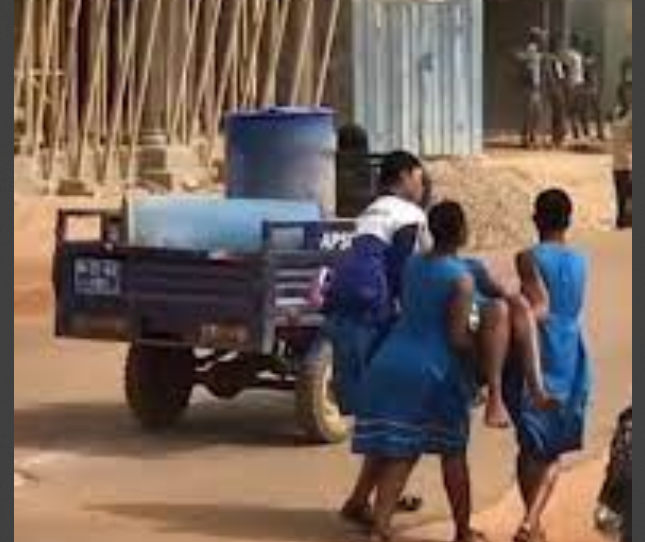Ghana’s Senior High Schools (SHSs) are meant to be institutions that groom students for higher education and prepare them for the world of work. These schools are spaces where teenagers begin to discover who they are, build discipline, and strive for academic excellence.
But lately, that ideal is being overshadowed by troubling headlines.
Rather than celebrating academic achievements, innovations, or sportsmanship, many SHSs are now in the news for student unrest, inter-school rivalries, and in some cases, violent incidents—including fatal stabbings.
This rise in violence and disorder is becoming an alarming trend, threatening not only the safety of students but also the core purpose of these institutions.
A Deadly Weekend of Violence
The most recent and tragic example occurred on Saturday, July 26, 2025, at Bawku Senior High School, where a final-year student, Hakim Kundima, was shot and killed right on campus. The incident sparked widespread panic, forcing school authorities to shut down the institution temporarily to avert further casualties and ensure the safety of staff and students.
Shockingly, on that same day, two students from Nalerigu Senior High School were reportedly shot dead by unknown assailants. While investigations are ongoing, preliminary intelligence suggests a potential link to the prolonged Bawku ethnic conflict.
Leaving onlookers alarmed that this deeply rooted regional crisis may have its ripple effects seemingly creeping into school environments.
However, this connection remains unconfirmed as of this report.
A Rising Trend in 2025
To treat this as an isolated incident would be a mistake. The year 2025 alone has seen a disturbing number of violent occurrences in SHSs across the country, ranging from stabbings and clashes to, most recently, shootings.
According to Finex Insights, here is a summary of major violent incidents in SHSs so far this year:
• July 19. 2025 – Five students sustained various degrees of injuries following a clash between Dabokpa Technical Institute and Vittin Technical Senior High School.
• April 4, 2025 – A shooting incident occurred at the Seventh Day Adventist in Kumasi, where a student accidentally shot two colleagues after bringing a gun to school.
• February 27, 2025 – Students of Christian Methodist SHS, armed with weapons, clash with local youth over an alleged theft.
• February 23, 2025 – At the Sokode Senior High Technical School in Sokode-Etoe, students engaged in a violent clash with local youth.
• February 5, 2025 – Students of Salaga SHS were arrested with pistols after stabbing a colleague during a fight.
• January 30, 2025 – Students from Kumasi Technical & Kumasi Anglican clashed after a competition, resulting in injury and property damage.
Are School Authorities to blame?
Many are beginning to ask tough questions. Are school administrators doing enough to ensure safety? Are there adequate conflict resolution mechanisms and student support systems in place?
The answers vary depending on the specific institution and its unique challenges. In areas like Bawku and Nalerigu, school authorities are not solely to blame; they, too, are grappling with the effects of external ethnic or communal tensions spilling over into school environments. Solving such problems requires inter-agency collaboration that goes beyond the education sector.
That said, schools must still take responsibility where due. For instance, the absence of proper dormitory security systems or timely responses to early warning signs reflects a degree of administrative failure.
In some schools, overburdened staff and under-resourced counselling units make it difficult to pick up intelligence from amongst the student populace to detect and address issues before they escalate.
Why Are We Seeing This Violence in Our Schools?
Several factors may be contributing to the rise in violence:
1. Societal and Community Conflicts: Ongoing ethnic or political tensions in certain regions often spill over into school campuses.
2. Lack of Discipline and Moral Training: Some argue that the emphasis on academic results has overshadowed character formation and discipline.
3. Peer Pressure and Social Media Influence: The glorification of violent behavior on social platforms has made aggression appear trendy among youth.
4. Limited Counseling and Mental Health Support: Many students struggle with emotional and psychological challenges but lack access to professional help.
5. Weak Security Systems: Most SHSs lack proper security infrastructure such as surveillance cameras, trained security personnel, and emergency response systems.
What Can Be Done to Control This Menace?
Addressing the rise in violence in senior high schools requires a multi-pronged approach:
• First is the creation of a ‘safety policy’ in Senior High Schools. This can be achieved if authorities from the Ministry of Education, Ghana Education Service, other educational stakeholders and security agencies come together to create a comprehensive plan that ensures that young students have the necessary protection in their schools. This move would leave parents assured that their wards are adequately cared for.
• Counselling units in schools must be strengthened. Schools need well-resourced guidance and counselling departments to support students’ mental and emotional well-being. These units should play a proactive role in monitoring student behaviour, promoting positive conduct, and upholding high standards of discipline. They must also instill values of peacebuilding and teach students constructive ways to manage conflicts and disagreements.
• Improved Security by installing CCTV cameras, increasing campus patrols, and controlling visitor access can help deter violence as well.
The current wave of violence in Ghana’s senior high schools is deeply troubling. If unchecked, it threatens not only the safety of students and staff but also the credibility of the country’s education system. It is time for all stakeholders, school authorities, parents, government agencies, and students themselves to come together to restore discipline, safety, and a conducive learning environment in our schools.
Ghana cannot afford to let its future leaders be lost to violence.
